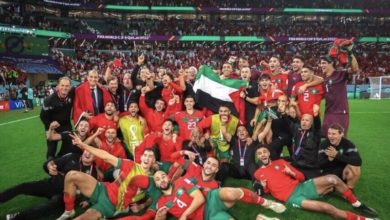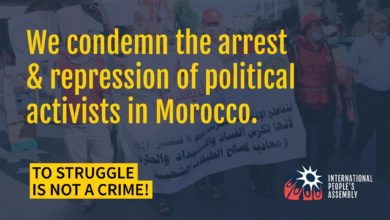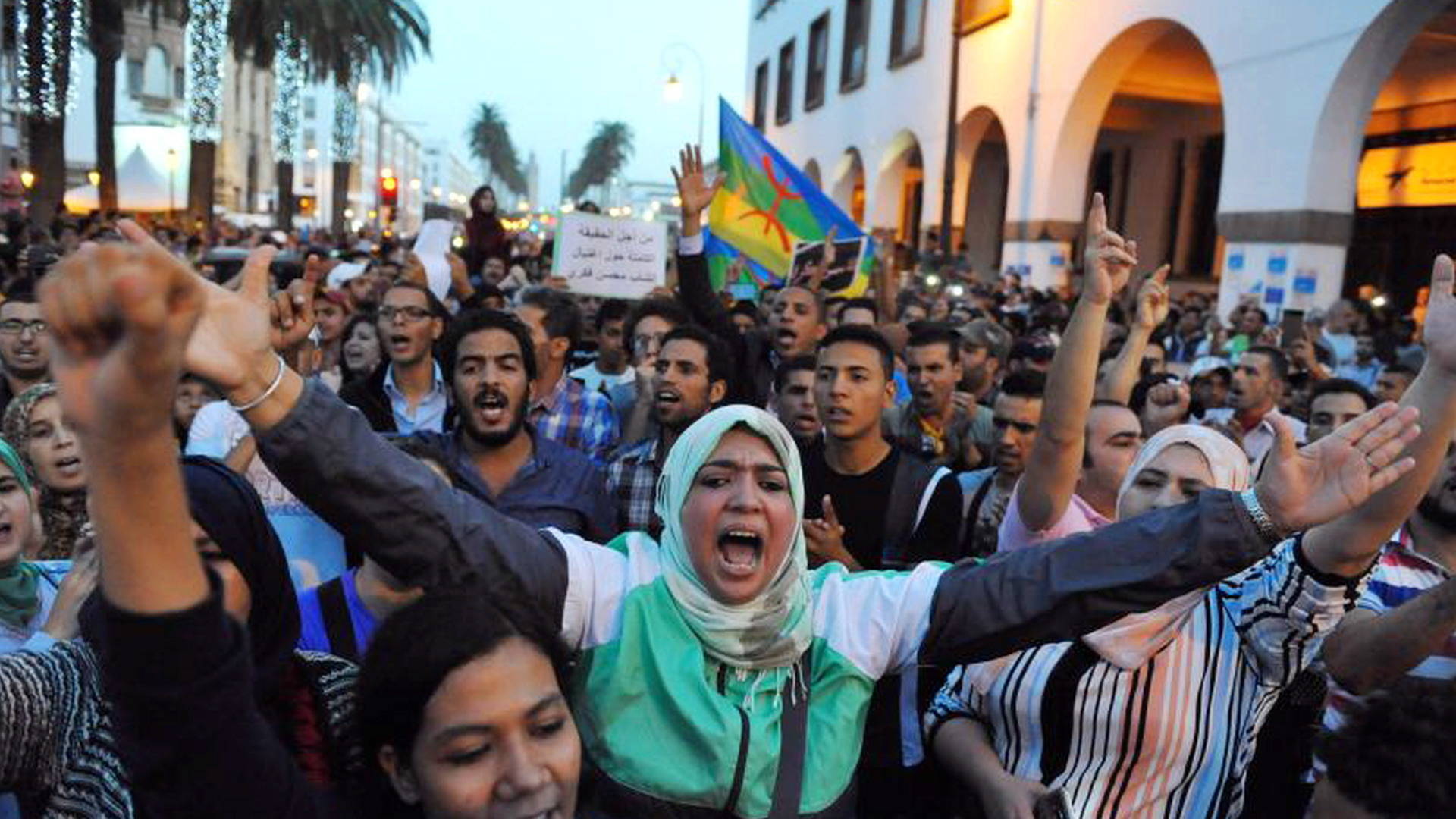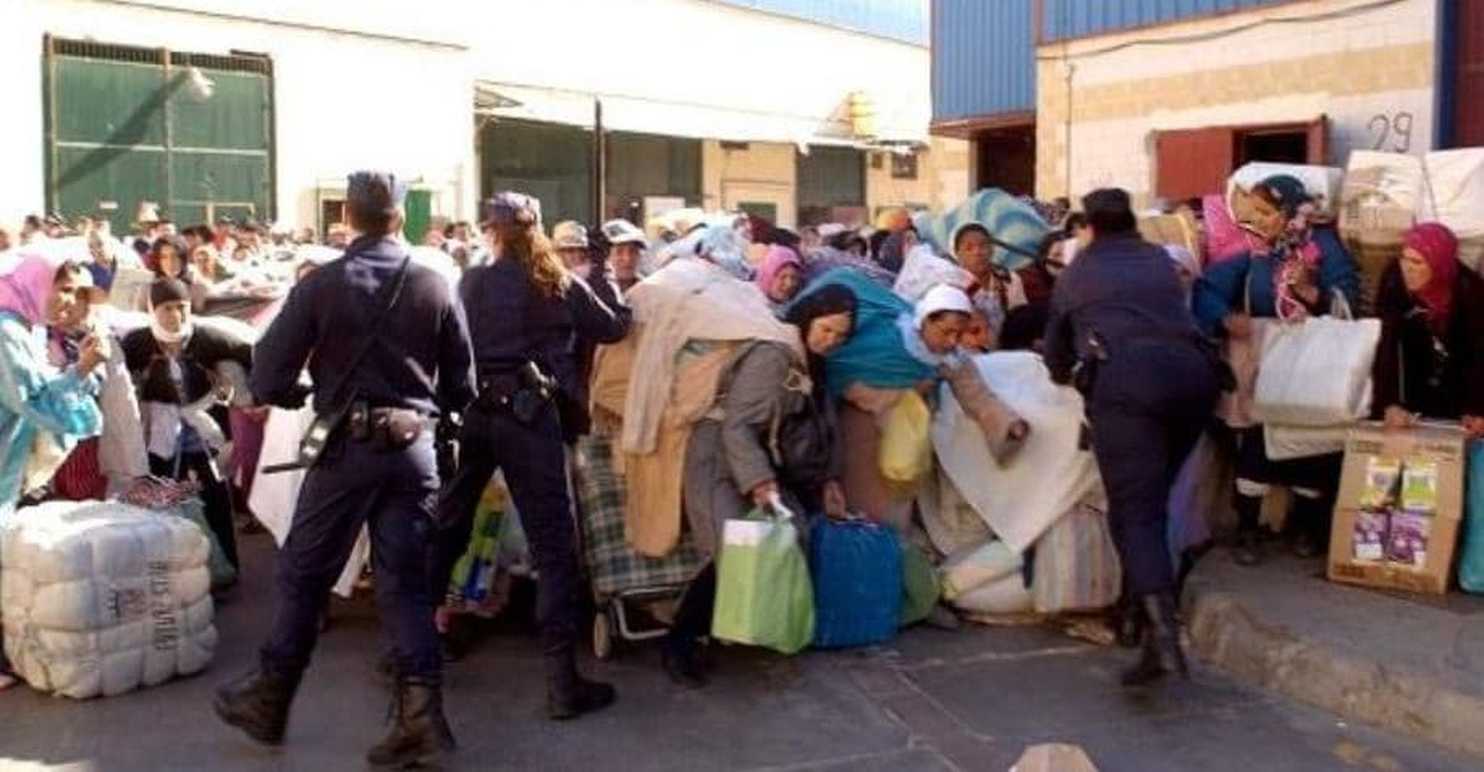In October of last year, video footage emerged of Mohcine Fikri, a poor fish seller in the northern Rif region of Morocco, trying to salvage his fish from a garbage truck. With callous disregard, the police had discarded the fish in the trash, denying Fikri and his family their livelihood. The video then shows Fikri trying to save his fish and the police ordering the garbage truck driver to crush the humble fisherman.
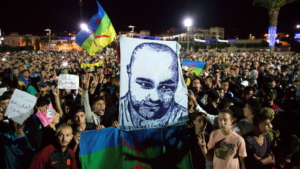
The murder of Mohcine Fikri, reminiscent of the death of fruit vendor Mohamed Bouazizi in Tunis six years earlier, speaks to the mass alienation that the Morocco people face. This is how our people are treated by the government: like disposable pieces of garbage.
The Moroccan state’s murder of Fikri was a wake up call; Moroccans have had enough. Mass protests shook the country. Despite intense state repression and a media blackout, masses of Moroccans are coming into political life for the first time since the Arab spring.
The common thread in all these instances is the intense police repression and terror that the people suffer from daily at the hands of the Makhzen (the state apparatus). A new movement named Hirak chaabi (popular movement) has emerged to fight against police impunity and what Moroccans call Hogra , the contempt shown by the monarchy towards the poor.
A history of rebellion
The people of Morocco have always revolted and demanded to be treated with dignity and respect in the land of their ancestors. Concentrated in the city of Al-Hoceima on the Mediterranean coast, the protests have attracted once invisible sectors of the working class, including many Amazigh-speaking peasants in surrounding villages and those displaced to major northern cities from the neglected mountains of the Rif.
Amazigh languages are indigenous to North Africa. In Morocco, some 50 percent of the people speak a variety of Amazigh as their first language. The Amazigh-speaking groups native to Morocco are called “Berbers” in the West, a term we disapprove of. “Berber” comes from bárbaros , a Greek word used by the ancient Greek ruling class to mean a non-Greek-speaking, foreign barbarian.

Our protests have a clear target, the ruling class and the monarchy that have been at war with the Rif region since the early 20th century.
In the 1920s, the Amazigh-speaking Riffians rebelled against the monarchy, leading an anti-colonial republican revolution. Anti-Amazigh chauvinism became institutionalized as the Rif republic was crushed by the Spanish colonizers allied with the Moroccan ruling class.
In the aftermath of independence, the monarchy allied with the colonizers once again, to repress peasants who had liberated their land and expanded their collective power independently of the palace. The repressive reign of Hassan II occupied the Rif region, quelling the people’s rebellion and unleashing “cleansing operations.”
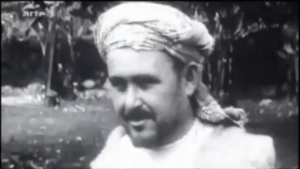
The current popular uprising is reclaiming the revolutionary history of the Rif and its symbols, the Amazigh flag and the Rif republic flag, as well as pictures of Abdelkrim Al Khattabi, the historic leader of the Rif revolution. There are protests nearly every day and the rest of the Morocco has shown inspiring solidarity.
This June, following violent raids by the authorities in Al Hoceima, Imzouren and other hotbeds of the movement, the masses of disgruntled people demanded liberation for political prisoners and coordinated resistance efforts with the detainees. In Casablanca, where most of the political prisoners were transferred, the solidarity marches and protests also commemorated the events of June 1981, when the monarchy crushed a general strike that demanded bread and dignity. The government massacred hundreds of Moroccans.
For the first time since the short-lived 20 February movement in 2011, an organized movement is gaining mass support. The basic demands for dignity and human rights are uniting factors for the nation, which shows how urgent and dire the situation is.
No one prays more than the poor
The movement is standing up against the police, the repressive monarchy, and the religious authorities who justify their crimes against the people.
A key leader of the protests, Nasser Zefzafi, interrupted a prayer service during the holy month of Chaabane to expose the imam as a servant of the Makhzen. The imams have long encouraged the dispossessed of the Rif to kneel and wait on heavenly intervention, instead of seeking justice. After a video of this unprecedented act of defiance was released, Zefzafi was immediately arrested and charged with a series of fabricated crimes including “separatism,” “obstructing freedom of worship” and “undermining national security.” The Makhzen media launched a smear campaign against him and the idea that established religious authority could be challenged.
Women lead the way
Another unprecedented aspect of the movement is the participation and leadership of women activists. Mothers and grandmothers, traditionally confined to the domestic economy, have come into the streets with their children to lead chants and marches. Meanwhile, the Moroccan government — appointed by the King — has only one woman minister, Bassima Al Hakkaoui who has openly denounced women’s rights and supported a reactionary law that protects rapists. The parliament, which is a sham democratic organ, has only 21 percent women.
One of the women leaders arrested was Silya Ziani, a powerful singer and actress who took a leading role in articulating the political analysis of the movement. She was quoted as saying that the Movement was fighting against the military occupation of the Rif, where armed forces are always stationed, given its history of revolutionary activity. She provided political leadership following the police crackdown on the movement. She was arrested June 5 and transferred to Oukacha prison in Casablanca where movement leaders are currently held and denied basic human rights. The detainees are currently engaged in a prison strike.
Despite the crackdown, protestors gather in the streets every night after Iftar (traditional meal shared by families after sundown during the month of Ramadan) and night prayer, chanting “We are all Zefzafi” and “Free all political prisoners.” Since October of last year, the popular chants have been: “Are you a government or a gang?” and “Mohcine was murdered and the Makhzen is responsible!” While the state media continues to paint it as a fringe ethno-separatist group that does not represent popular sentiment, the movements horizons and unity grow everyday.
My homeland, a neo-colony
The U.S. media works hand in glove with the Moroccan media to blackout the protests and artificially prop up Morocco’s “enlightened monarchy.” Morocco remains a strong U.S. proxy in Northern Africa, receiving between $50-100 million in aid each year for the last 20 years.
The imperialist bloc supports the Moroccan regime against progressive secular African and Arab states under the cover of the war on terror. Morocco, is a part of the Saudi-led coalition bombing Yemen into starvation to “spread democracy and human rights.” The U.S. think tanks, the Washington Institute for Near East Policy called for the Saudi monarchy to crush the Yemeni rebellion to prevent instability.
On the other side of the Atlantic, Morocco’s French neo-colonial rulers have also weighed in on this situation. Last week, as the people marched in the streets the King was meeting with Emmanuel Macron behind closed doors to discuss “security cooperation.” Following this short meeting, Macron expressed his “trust” that Mohammed VI’s “silence” showed his deep consideration for the protesters’ demands. When asked about possible human rights abuses against protesters, he dodged the question.
Despite all of these challenges, for over the six months, the crowds of angry Moroccans continue to swell. The people are looking to leaders they can trust and different sectors of the working class are being trained to lead.
We do not yet know what the future holds but one thing is clear—masses of people are in motion. The revolutionary potential of the Moroccan people is manifesting itself once again. The isolated monarchy will not destroy our history and bury our heroes and inspiration to fight. Those in power would have us believe Moroccans are a passive, patient people and Morocco is some success story of social peace in the “Arab world.” Never! We are fed up! As the Polish revolutionary Rosa Luxemburg taught us: “Those who do not move, do not notice their chains.” The more we struggle, the more we understand we cannot stop before we win power–people’s power!


